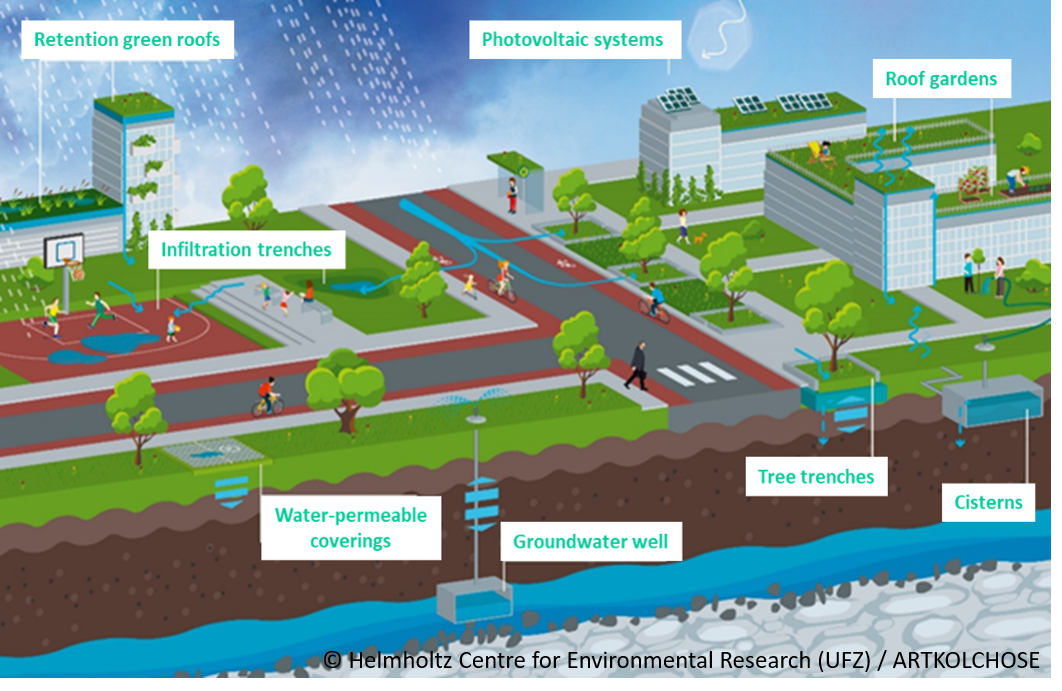
Systemic Environmental Biotechnology (SUBT)
How can the potential of microbiological systems be systematically deployed to solve environmental problems? What characterises sustainable biotechnological methods for cleaning polluted waste water, surface water and ground water? How important is an appropriate system architecture which takes account of an ideal balance between centrality and decentrality on a regional scale? How is it possible to not only develop a new process but also implement it as required in the context of a given regional system? What form might cooperation between decision-makers in business, politics, associations and authorities take in achieving this aim?
The essential aim of the work undertaken in the Department of Systemic Environmental Biotechnology is to answer these questions. As an engineering research department, our goal is to develop new and sustainable technologies and procedures and to upscale them for integrated application on a regional level.
The technical schools and the pilot and demonstration systems at the Department Systemic Environmental Biotechnology have a particularly important role in this respect. Operating these systems provides elementary knowledge of the subject and is also key to successful transfer, as they serve as platforms for interdisciplinary research synergies and for cooperation with partners in research and business.
The implementation and commercialisation work done at the Department of Systemic Environmental Biotechnology is characterised by a methodical approach which consistently views the translation of research results as an integral component of that work. The procedures developed there are evaluated technically and optimised for use in a system context. Technical development is surrounded by economic and legal issues. The opportunities for and obstacles to integrated application are also analysed. Identifying and setting up the ideal framework conditions for implementation requires the investment of much time and expertise in capacity development on a number of subject-related and educational levels, in results-focussed publicity and in the early involvement of the relevant decision-makers.
